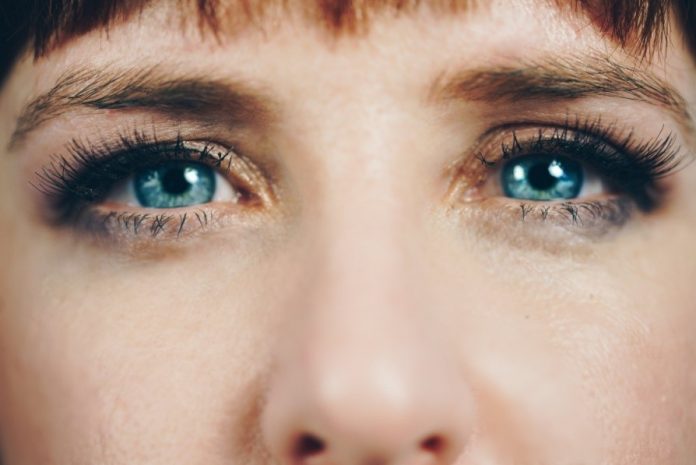We only have one pair of eyes and although technology has advanced to improve eye sight, we need to take care of your eyes. Keep in mind that healthy habits like eating well and being active can lower your risk for diseases and conditions that can lead to eye or vision problems, like diabetes or high blood pressure.
Reduce Screen Time
Screens such as computers, TVs, and smart phones may cause your eyes to strain. In particular Blue light from screens may also cause damage to your eyes. Take time away from the screen every 20 to 30 minutes. Make sure that the screen is at eye level or slightly lower. If seated ensure you are at least 30 cm away from the screen . Ensure that the surrounding light is both adequate yet not too bright that it causes a glare. Screen glare protection is available so check it out and test what’s comfortable for you.
Protecting Eyes from the Sun
As ultraviolet (UV) rays from the sun may cause sunburn they can also harm your eyes. Excessive UV sun exposure include cornea burns, cataracts and macular degeneration. The right eye protection is a great healthy habit to take care of your eyes. Eye protection by the way of sunglasses may block both the UVA and UVB ray when you are outside. Do not be fooled into thinking that sunglasses are not required on a partially cloudy day. Effective sunglasses will have a label showing the protection of UV. UV exposure may come from a number of things including concrete, sand, snow, and water. Wide-brimmed hats and umbrellas go a long way to shielding your eyes from harmful UV rays.
Protect Your Eyes
Eye injuries are common at home and on the job. Wear safety glasses when you are working on projects at work or at home. Airborne debris are common when DIY jobs are done at home. Wear protective glasses or goggles when playing sports that put your eyes at risk. Sport goggles are normally Polycarbonate lenses, which offer maximum protection as they are more resistant to impact than most other materials.
Nourish Your Eyes
The same foods that are protective of blood vessels in your heart are also good for those in your eyes.
Another great habit to take care of your eyes is to eat plenty of whole foods including grains, dark leafy greens, and citrus fruits. Nutrients like zinc, beta-carotene, lutein, and zeaxanthin are especially protective for your eyesight. Lutein and zeaxanthin are found in leafy greens like kale, spinach, and collard greens. Lower amounts of these nutrients are found in corn, green peas, broccoli, romaine lettuce, and eggs. Ask your eye doctor whether you would benefit from taking a daily vitamin and mineral supplement formulated to protect eye health.
Rinse and rest Your Eyes
Apply cold and or warm compresses over your eyes to reduce different symptoms. With Allergy and or Blefilitis , warm water with baby shampoo may help to open the blocked ducts and over a few days of eye bathing may get rid of the eye issue. Remove dust or dirt from your eyes by rinsing them with clean water or a saline solution formulated for the eyes. See your ophthalmologist right away if you develop potentially serious problems like eye pain, swelling, secretions, or unusual sensitivity to light. If you develop vision problems like flashes of light, dark floating spots, partial vision loss, blindness, or other problems with your eyesight, see your eye doctor right away.
Observe other Health Conditions
Diabetes and high blood pressure may cause changes in blood vessels that diminishes blood flow to the eyes. This, in turn, may cause vision to deteriorate. Diabetic retinopathy is a common cause of vision loss. Autoimmune diseases including lupus, multiple sclerosis, rheumatoid arthritis, and Graves’ disease may affect the eyes. Other conditions that can affect the eyes include aneurysms, cancer, lung disease, and thyroid disease. Make sure your eye doctor knows your current and past health history as well as your family history of eye diseases and other serious conditions.
Note Medication Side Effects
Pay attention to how you feel if your doctor prescribes medication for you. Be aware of any potential side effects and report them immediately to your doctor. Visual distortion and eye symptoms from medications may range from mild to severe. Side effects of medication may include dry eyes, watery eyes, sensitivity to light, blurry vision, double vision, eye puffiness, and droopy eyelids.
Medication that are common in causing side effect are : Beta blockers, diuretics, antiarrhythmics, statins, antipsychotics, antidepressants, steroids, pain medications, antihistamines, sleep aids, and many others
Beware of Eye Makeup
Renew eye makeup and mascara at least every 3 months. If you get an eye infection, immediately dispense of all of your eye makeup. To be sure of the infection cause and treating of such infection make an appointment with your eye doctor. Take your makeup off and wash your face before going to sleep at night.
Regular Eye Exams
a Great proactive habit to take care of your eyes are to take an eye exam at least every other year. Eye exams can detect problems like farsightedness, presbyopia, astigmatism, glaucoma, and macular degeneration. The doctor can examine your retina, macula, and other parts of your eyes. The doctor will also assess your sight during the exam.
Overall health
Protecting your overall health can go a long way toward keeping your eyes healthy! It’s important to make healthy choices and take good care of yourself.
Being physically active helps you stay healthy. It can also lower your risk of health conditions that can cause eye health or vision problems — like diabetes, high blood pressure, and high cholesterol.
Should you ever be in doubt of any symptoms remember to consult your doctor or specialist.















